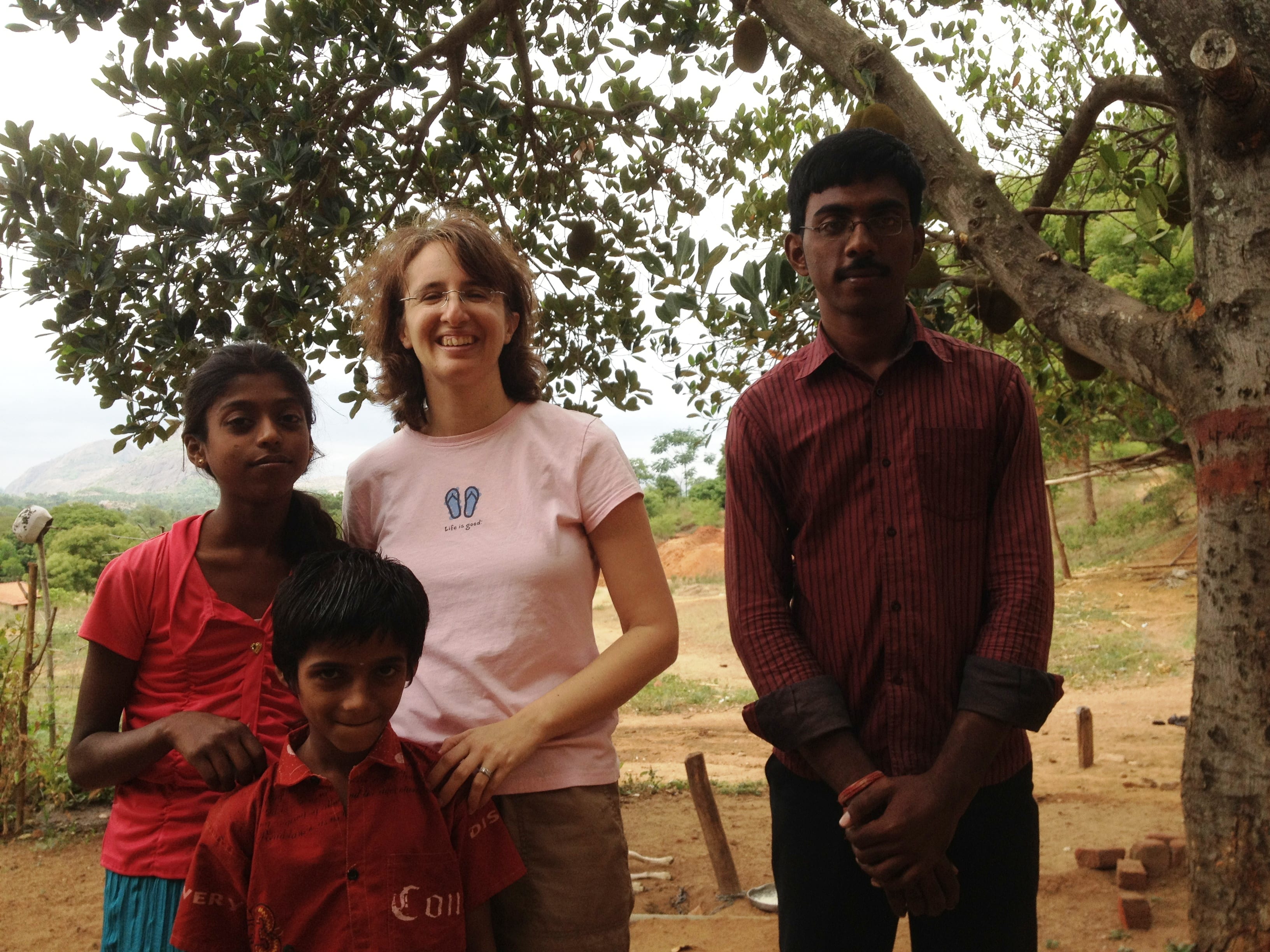 Imagine you walk into a restaurant as a tourist. You’ve never been to this place before but it comes highly recommended, so you twitter with excitement over the gastronomic possibilities. As you wait for the host or hostess, however, no one comes. Suddenly a server sees you and says, “She’ll be right with you.”
Imagine you walk into a restaurant as a tourist. You’ve never been to this place before but it comes highly recommended, so you twitter with excitement over the gastronomic possibilities. As you wait for the host or hostess, however, no one comes. Suddenly a server sees you and says, “She’ll be right with you.”
So you wait. Another server passes by and says “She’s coming soon.” Who is this mysterious woman keeping you from sitting down? You wait, and you wait. Your legs begin to twitch from standing. Yet another staff member passes by and says, “She’ll be right with you, sorry.”
By this time it’s worth the wait just to see this Grand Master of All Seating. Finally she comes. She looks at you and says, “Oh! I was so busy chatting I didn’t see you there.”
Really?
Then she asks if you have reservations. No, you answer. You are just passing through town. The Seating Master looks at a paper chart and says, “Well, I just don’t think I have anything. Oh, wait, I spoke to soon…” But before she can finish her sentence she spots someone she knows, someone local to that small town. Turning away from you she begins talking animatedly to this gentleman and seats him right away. By now your jaw has dropped to the floor in astonishment, but she doesn’t notice as she comes back and seats you at last.
You think it’s over? Not quite. Your server comes to the table and begins to fill your water glasses, looking at you with confusion as if to say “What are you doing at this table?”
She smiles, but still looks confused. “The hostess will be right with you, ” the server says. What?
At last the server realizes that the Seating Master has already given her approval to the choice of table, and the meal proceeds as normal.
Can you guess the whereabouts of this strange locale? It is not a galaxy far, far away? Nope, it’s Lincoln, New Hampshire, a town just outside the White Mountains.
My husband Jay and I recently returned from a three week trip through New England. For the last two summers we have traveled within the United States to learn more about our own country and culture. Though I was born in the Northeast, I grew up in Los Angeles and moved to Atlanta, GA about sixteen years ago. I had only been back to New England once or twice since birth, and never for long. I had much to learn about the culture.
What happened with the Seating Master was not a one-time occasion. It happened again the next morning in a different restaurant. We walked in and no one greeted us. Finally we flagged down a server and she told us to see “The Man with the Chart” over there. He smiled and asked us how many in our party, but then ignored us for several minutes while he talked to someone he knew. At last we were seated.
Jay and I began to wonder if we were not picking up on some cultural cues. We felt out of our element, in spite of being in our country of birth and residence. We didn’t know the rules, therefore we didn’t know how to behave.
Along our trip we noticed other differences from the language (a soft serve ice cream was called a “creamy”) to the less obvious communication modes used for certain groups. Traveling in your own country you don’t expect to find differences that drastic, even though you are aware they exist. Everyone talks about the variety of cultures in the United States, but when you don’t know how to act in the place you call home, this can be disconcerting.
don’t expect to find differences that drastic, even though you are aware they exist. Everyone talks about the variety of cultures in the United States, but when you don’t know how to act in the place you call home, this can be disconcerting.
We must exercise caution as we encounter these differences because evaluations and judgments can creep in. If you are from the U.S., you expect things to be different in India, but in your own country? No, that’s just “not right.” If we heighten our awareness of these cultural variations before traveling, our expectation will better match reality.
Then something magical happens. You begin to see all the differences that open you up to new ways of living or seeing the environment around you. In Vermont, we ate at several restaurants which served food locally sourced from farms down the road. In Maine we saw how the lobstermen formed strong communities. In Connecticut we experienced a quieter life and got to slow down for once.
If you work virtually or in person with folks from the U.S., even if that is your country of origin, be sure to account for regional differences when building your team. Do not assume that you will have common rules and cues, but rather ask, verbalize, and discuss those rules.
We had a glorious time in New England and found the people helpful, friendly, and lively. The landscape glowed with green trees and inky blue rivers. The rugged coastline inspired us and the lighthouses delighted. Most of all, we got to be culturally confused right in our own backyard. That’s the only way you grow and thrive in today’s global economy!




